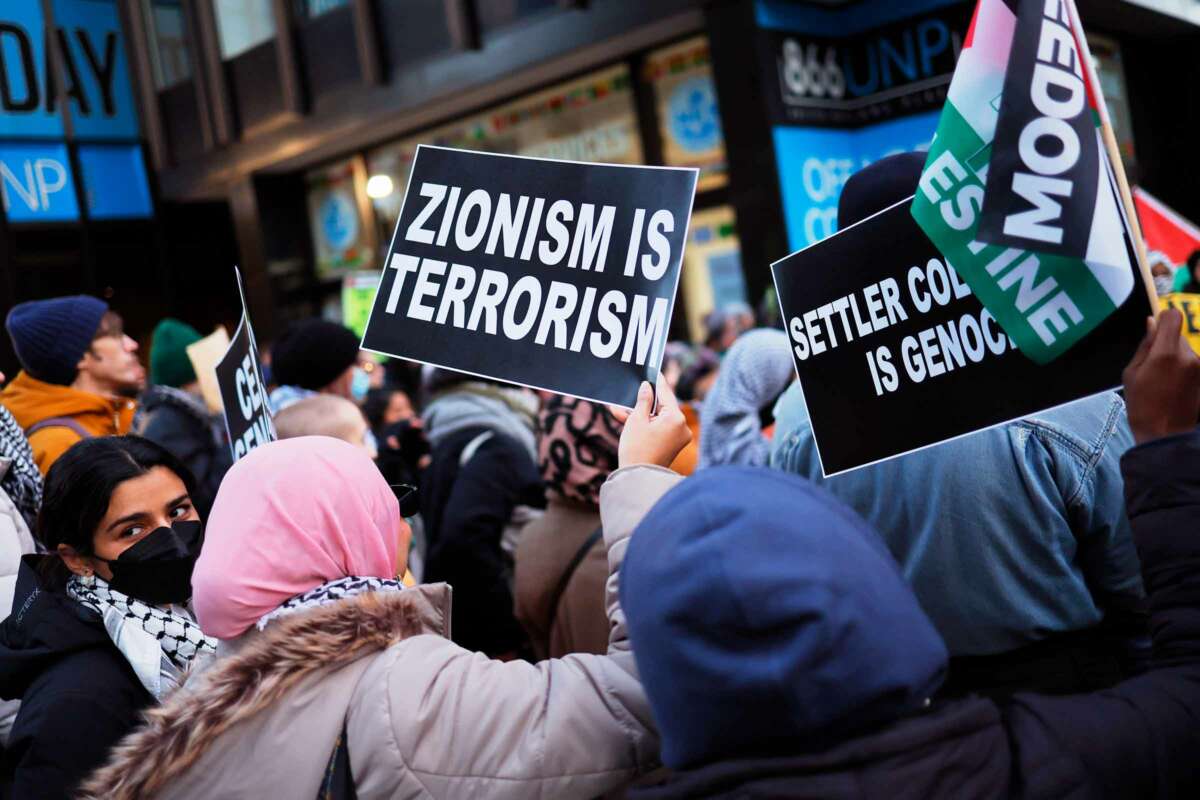Hisham Awartani, one of three Palestinian college students who were shot by a white man in Burlington, Vermont, over the weekend, issued a text message statement to his peers at Brown University on Monday night, which was read aloud during a vigil on campus.
In his missive, Awartani, who grew up in the occupied West Bank in Palestine, said the attack against him and his friends — Kinnan Abdalhamid, who attends Haverford College in Pennsylvania, and Tahseen Ahmed, who attends Connecticut’s Trinity College — was “part of a larger story” of racism and violence that Palestinian people face every day.
“This hideous crime did not happen in a vacuum,” Awartani said. “As much as I appreciate every single one of you here today, I am one casualty in this much wider conflict.”
Awartani went on to highlight the injustices of the Israeli occupation by noting what likely would have happened had he been shot by Israeli forces in the West Bank instead.
“Had I been shot in the West Bank, where I grew up, the medical services that saved my life here would likely have been withheld by the Israeli army,” Awartani said. “The soldier who shot me would go home and never be convicted.”
“When you say your wishes and light your candles today, your mind should not just be focused on me as an individual, but rather as a proud member of the people being oppressed,” Awartani added.
Police in Burlington say that Jason James Eaton, a 48-year-old resident of the city, shot Awartani, Abdalhamid and Ahmed on Saturday evening. Eaton was arrested on Sunday after he made statements alluding to his guilt and a search of his apartment revealed a loaded pistol containing bullets similar to those used against the three college students.
Awartani’s message comes as colleges and universities across the U.S. have aggressively censored students and student organizations who have called for an end to Israel’s genocide in Gaza, which has killed more than 15,000 Palestinians so far, including more than 6,000 children.
In response to protests calling for a ceasefire and an end to the occupation, several pro-Israel groups have smeared student organizers as antisemitic, and universities have shut down student groups that advocate for Palestinian liberation, including chapters of Jewish Voice for Peace and Students for Justice in Palestine.
The presidents of Harvard University, the University of Pennsylvania, and the Massachusetts Institute of Technology are slated to testify before Congress next week to discuss antisemitic attacks and threats on college campuses. Criminal defense attorney and author Huma Yasin warned in an op-ed for Truthout earlier this month that while antisemitism is on the rise and must be opposed, characterizing dissent against Israel’s genocide in Gaza as antisemitic has dangerous consequences.
“To be clear, true antisemitism should not be tolerated in any form. However, adopting a false paradigm in which advocating for Palestinian human rights is considered antisemitic is disingenuous at best. At worst, it leads to the type of hate crime that resulted in a 6-year-old Palestinian boy being fatally stabbed 26 times by his landlord in a suburb south of Chicago,” Yasin wrote, referring to the killing of Wadea Al-Fayoume in October.
When political speech is criminalized, it renders the First Amendment meaningless. Collectively, we must demand that universities and colleges continue to honor student organizations’ right to freedom of expression, and we must demand the same from our elected officials and law enforcement. Now is not the time for silence.
Thank you for reading Truthout. Before you leave, we must appeal for your support.
Truthout is unlike most news publications; we’re nonprofit, independent, and free of corporate funding. Because of this, we can publish the boldly honest journalism you see from us – stories about and by grassroots activists, reports from the frontlines of social movements, and unapologetic critiques of the systemic forces that shape all of our lives.
Monied interests prevent other publications from confronting the worst injustices in our world. But Truthout remains a haven for transformative journalism in pursuit of justice.
We simply cannot do this without support from our readers. At this time, we’re appealing to add 50 monthly donors in the next 2 days. If you can, please make a tax-deductible one-time or monthly gift today.
